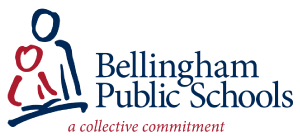It’s never too early to start saving money for college. We want all families to be prepared to handle the rising college by saving early and consistently. Counselors assist students in achieving future academic and career goals and funding their college dreams. Students are encouraged to meet with their counselors early and often to discuss scholarship searches and funding for quality post-secondary credentials. Counselors are trained to assist students and families in completing the (FAFSA).
When it comes to paying for school, you’re not alone. Grants, work-study, and low interest loans help make college affordable. Financial aid is available from a variety of sources for college, career school, graduate school and professional/technical school.
Federal student aid includes:
Grants ‚Äì Grants are often called ‚Äúgift aid‚Äù because they are free money‚Äîfinancial aid that doesn‚Äôt have to be repaid.Ã˝ Grants are often need-based.Ã˝ They can come from the federal government, state government, your college or a private or non-profit organization.Ã˝ Occasionally you might have to pay back part or all of a grant if, for example, you withdraw from school before finishing an enrollment period such as a quarter.
Scholarships ‚Äì Scholarship are also free money that does not have to be repaid.Ã˝ Scholarships are often merit-based. There are thousands of them, offered by schools, employers, individuals, private companies, nonprofits, communities, religious groups, and professional and social organizations. Find and apply for as many scholarships as you can! Check with your school‚Äôs Career Center for opportunities.
Loans ‚Äì Federal student loans for college or career school are an investment in your future. You must repay your loan, so be sure you understand all your options and responsibilities. A loan is money that you borrow and must pay back with interest. Student loans can come from the federal government or private sources such as a bank or financial institution.Ã˝Federal student loans usually offer borrowers lower interest rates and have more flexible repayment options than loans from banks.
Work-Study – Federal work-study jobs help students earn money to pay for college or career school. Undergraduate students with work-study jobs will work part-time on or off-campus while enrolled. Work-study jobs are typically reserved for students with financial need, allowing them to earn money to help pay education expenses. The program encourages community service work and work related to the student’s course of study.
In order for students and families to access grants, loans or work study, students and their parents/guardians need to complete the FAFSA (Free Application for Federal Student Aid):Ã˝ .Ã˝ Schools plan financial aid activities for seniors and their parents/guardians during the fall and winter of each school year.
Ã˝
